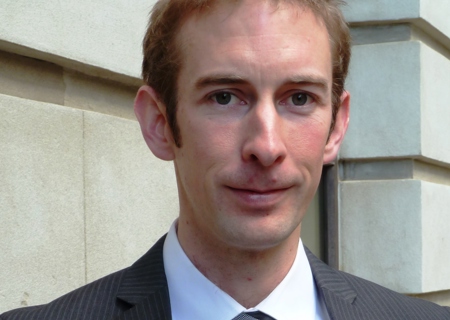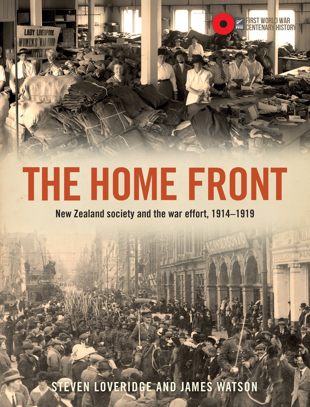Q1: New Zealand emerges from the pages of The Home Front as a far more interesting and complex young nation than many readers might imagine. Could you explain why?
Well, in some minds New Zealand history is generally filed as small-scale and mundane. We also have a tradition of thinking of the war as something ‘over there’ and an idealised sense of ‘over here’ as untouched by the carnage. The result is an imagining of wartime New Zealand which is only true by degree. The reality was not staid Edwardianism or a detached sepia-toned innocence but a society filled with human beings, as real as we are, grappling with knotty issues, heightened passions and shattering losses.
Q2: You make it pretty clear that we didn’t go into the war universally applauding and cheering. There was a great deal of dissent. But not enough to ever derail momentum?
Yes, commitment to the war was never universal, unconsidered or unconditional. The real debate was not between frothing ‘pro-war’ jingoes and absolute pacifists, both rarer than many might think, but within a huge mass of people accepting that the war should be fought but trying to set the terms on which sacrifices were made and reacting to the frustrations, hardships and tragedies a war on this scale entailed.
Q3: The Waikato opposition is deeply interesting. Te Puea Herangi was a remarkable and immoveable force, wasn’t she?
Absolutely, the point that repeatedly struck me was the disconnect between officials and attitudes in the Waikato. Authorities were well aware of Waikato’s grievances but considered that these should not stand in the way of involvement in the national struggle. Waikato evidently felt differently and Te Puea Herangi certainly proved an impressive voice and organiser for those sentiments.
Q4: Some key characters emerge, and were there from the war’s beginning to its end: William Massey, Joseph Ward and James Allen. What strikes you now about each of them?
In a largest sense, I developed a better awareness of how their profiles fit within New Zealand’s political traditions – whether that was Massey’s forceful character and populist-style, Ward’s sunny disposition and technocratic approach, or Allen’s dutiful, plain-speaking administrating. I also discovered a better appreciation of the politics in motion behind the easy platitudes of political truces. However, despite real frustrations and enmities, Massey, Ward and Allen all proved formidable in facing the staggering challenges of the war years, which included, as with so many other families, the personal turmoil of fearing for their enlisted sons.
Q5: There are great characters on the left, too. Tell us about one of them.
Indeed, and they operated in a heady time of shaping the aspirations and methods of the left. Peter Fraser stands out for me when you consider that in the eight-year period after his arrival in New Zealand in 1911, he worked his way from being a waterfront worker to a labour organiser, to being charged with inciting violence in 1913, to being very present at the mid-1916 foundation of the Labour Party, to being jailed for sedition in late-1916, to being elected to Parliament in October 1918, less than a year after his release and before his 35th birthday. In another 22 years he was Prime Minister.
Q6: And there are some colourful ‘bit players’ like Count von Luckner. You couldn’t make a story like that up, would you agree?
Definitely. In appearance and deeds SMS Seeadler’s blockade running and raiding of merchant shipping seems like a throwback to the age of sail and piracy. Add to that Captain von Luckner’s escape from his internment on Motuihe Island, by appropriating the commandant’s motor boat (and after stealing the commandant’s sword and posing for a picture), and you further burnish a legend for audacity.
Q7: It’s striking what a key role the media played. The papers back then were very partisan. In what way were they so different to media today?
The newspapers of yesteryear were largely focused towards a regional or niche audience and readily spoke their minds. Titles like Truth and the Observer made a feature of feisty commentary, scandalous details, scathing cartoons and vivid naming and shaming. Many of the middle-class orientated dailies were openly supportive of particular political parties while the Maoriland Worker was an institution for thundering editorials on labour and capital. There was also, however, a remarkable willingness to take high-level approaches to issues. For example, a labour-orientated paper like the Grey River Argus didn’t shy away from casual references to contemporary intellectuals in its editorials.
Q8: There were some crazy panics – indeed there was a certain amount of ‘fake news’ – at times. Can you outline one instance?
Aside from erroneous rumours and bogus information which gained traction (i.e. The Netherlands declaring war, Germany establishing factories to turn corpses into butter, the premature claim that an armistice had been signed) are trickier instances where fact and fiction became mixed and truths became distorted or sensationalised. Probably the most significant for the New Zealand home front were the reports of the German invasion of Belgium in which the very real predatory occupation and execution of thousands of civilians became rendered in sensationalised accounts of the ‘rape of Belgium,’ with depictions of Germanic ogres spiking babies on bayonets and severing children’s hands. To my mind it’s a lesson about the importance of sceptical empiricism and prioritising truth.
Q9: Did the level of anti-German and ‘enemy alien’ antipathy surprise you?
Sadly no – I think studying history wears down the capacity to be surprised over compromised humanity. If that rings too cynical, I’ll note that I was pleasantly impressed by those who denounced unwarranted discrimination and bullying, especially those who staked their public reputations in standing against mobs.
Q10: How was the New Zealand of 1919 fundamentally different to the New Zealand of August 1914?
I think it’s hard to capture a fundamental sense of what the war did to New Zealand. There are myriad developments linked with the war and many seem paradoxical; the war brought out conservative and radical qualities, inspired idealism and disillusionment, and stirred national sentiments while strengthening imperial ties. If there is an underlying shift, I think it was psychological – account after post-war account notes the sense that the pre-1914 world was now of another era. That’s not surprising when you consider that so many could cite the war as a life-changing experience.


